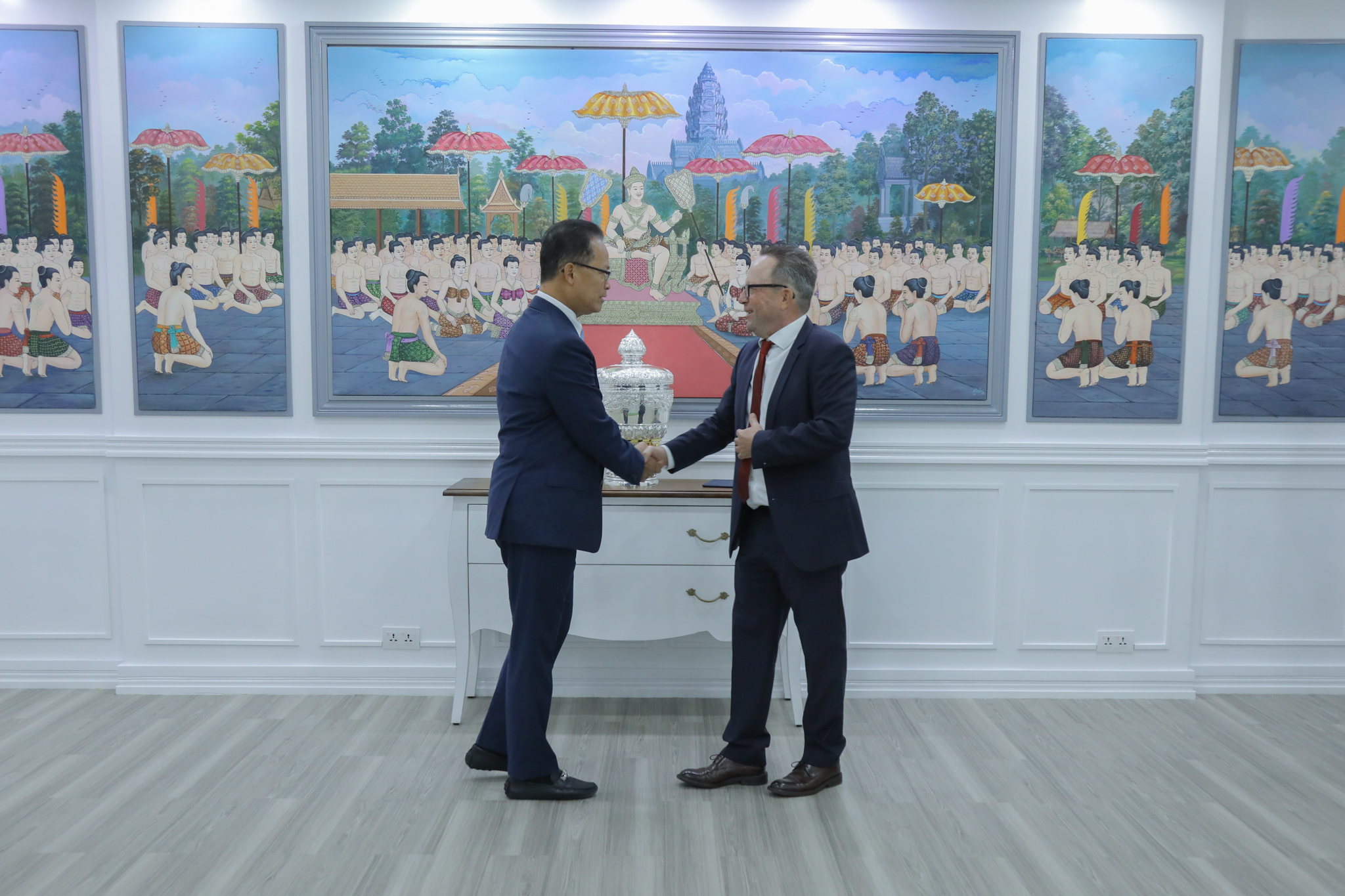Thursday, 5 October, 2023
In a diplomatic exchange of goodwill, H.E. Stefan Messerer, the German Ambassador to Cambodia, conveyed Germany’s commitment to the environmental sector in Cambodia during a courtesy meeting with H.E. Eang Sophalleth, Minister of the Environment. The ambassador emphasized Germany’s dedication to enhancing solid waste management and recycling techniques within the nation.

During their discussion, key initiatives such as Wetland Protection for the Mekong, the Maritime Area Protectionfund, and the Conservation of the Cardamom Mountains Legacy Landscape Fund were highlighted as integral components of Cambodia’s environmental strategy. Notably, health emerged as a pivotal concern, involving the active participation of multiple government ministries.
Ambassador Messerer commended Cambodia’s efforts in solid waste management, particularly applauding the “no plastic bag today” campaign. He stressed the importance of educating the population about the enduring negative effects of plastic pollution on rivers and waters, which ultimately contribute to unhealthy living environments. This educational component aligns seamlessly with Cambodia’s solid waste management approach, encapsulated by the three R’s motto: Reduce, Reuse, and Recycle. The ambassador noted that these principles not only bring environmental benefits but also yield economic advantages through resource reuse. Additionally, Ambassador Messerer shared insights into Germany’s approach to handling organic waste left on streets, which involves separation, drying, and composting. This process results in the conversion of organic waste into nutrient-rich soil, a sustainable solution for waste management.
During their discussion, key initiatives such as Wetland Protection for the Mekong, the Maritime Area Protection Fund, and the Conservation of the Cardamom Mountains Legacy Landscape Fund were highlighted as integral components of Cambodia’s environmental strategy.
Minister Eang Sophalleth outlined his initial priority during the first 100 days. The primary consideration is Solid Waste Management, with an emphasis on involving entire schools in plastic reduction efforts. This will be complemented by the installation of concrete garbage bins and water fountains in schools to equip children with the means to manage waste effectively and reduce plastic bottle usage. The minister’s ambitious goal is to engage about 3.7 million children in this initiative, which he believes will catalyze a broader shift in how Cambodian society perceives plastic consumption. In a show of agreement, the ambassador highlights the significance of educating children about responsible waste management. Encouraging children to bring this knowledge home can help transform societal perceptions of waste disposal, ultimately reducing waste at its source.
Lastly, Minister Eang Sophalleth stressed the imperative of establishing a circular economy for the long term. This vision involves harnessing bamboo as a locally abundant resource and combining it with cassava starch to create sustainable alternatives to plastic. Ambassador Messerer expressed unwavering support for these initiatives, pledging continued technical and financial contributions to the global environment.
It is important to note that the bilateral cooperation between the Federal Republic of Germany and Cambodia has been instrumental in supporting various initiatives, including the ASEAN Sustainable Solid Waste Management (SCP) project, the One Health project focused on the Tonle Sap Lake, and the sustainable management of natural resources and coastal areas. Additionally, climate-resilient agriculture and hardwood management have been central to this collaborative effort.